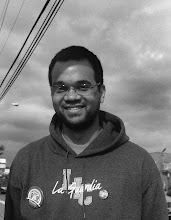
No event occurs in a vacuum. The catalyst that has ignited passions throughout the Middle East began nearly two months ago in Tunis. Twenty-six year old merchant Mohamed Bouazizi set himself on fire after an earlier incident occurred where he was harassed and humiliated by city officials. As word of his act spread, Tunisians across the country cried out in anger against their government’s chief oppressor--President Zine el-Abidine Ben Ali. Using mostly digital handheld devices to record videos, footage of their protests were uploaded to the internet--and the people’s outrage spawned what is referred to as the “Jasmine Revolution”. Weeks of continuously violent clashes with Ben Ali’s security forces eventually drove the dictator into exile--halting his twenty-three year reign. Soon after, a regional wave of anti-government protests by citizens weary from generations of despotic rule ensued.
Last June--before the events in Tunisia--an Egyptian businessman was reportedly bludgeoned to death by two policemen in Alexandria. The cause of twenty-eight year old Khaled Said’s death was officially listed as asphyxia. Authorities suggested he choked to death while swallowing a bag of drugs he allegedly had been concealing while in custody. Countering those claims was a picture of Said’s battered corpse--which went viral after being posted on the internet. His friends and relatives believe he was murdered to stop the release of a video he supposedly possessed--depicting police corruption. Heeding calls issued via Twitter and Facebook, Scores of enraged protestors took to the streets to demand justice for Said’s anguished family. Social media was vital in publicizing those stories. Without it, the world may never have known about either incident.
The opposition movement that eventually toppled Egyptian President Hosni Mubarak’s thirty-year regime was deeply rooted in social media. After his release from government captivity, the now famous Egyptian Google marketing executive--Wael Ghonim--revealed that he created the Facebook page We Are All Khaled Said--which he used to mobilize his fellow citizens, and organize mass demonstrations against the government. Recognizing social media’s effectiveness as a tool for dissidents to coordinate and synchronize their actions, the Mubarak regime cut internet service everywhere in the country--pinning its hopes on the blackout to disable the protestors.
The failed attempt to suppress the insurrection is believed to have resulted from Al-Jazeera’s round-the-clock coverage of the “Lotus Revolution”. Its status as the predominant satellite network in the region--as well as its good standing with the public--concerned the government so greatly, it moved to shut down Al-Jazeera’s Cairo office. Despite the restriction, its correspondents continued reporting on the crisis---which further emboldened the protestors.
Desperate to stem the tide of opposition threatening to engulf the regime, the government’s secret police and other Mubarak loyalists conspired to intimidate western journalists--to keep them away from Tahrir Square, where they later ambushed demonstrators, and tried to chase them away. Dozens of reporters were either attacked in the streets by angry mobs or seized by the police during the offensive. Some were brought to detention centers--where a number of them were interrogated, beaten, and kept in solitary confinement for several hours before being released. In response, the international community blistered Mubarak, and demanded all ruthless tactics to quell the rebellion cease. With every last arrow in his quiver deployed--and having lost the military’s political support--Hosni Mubarak conceded, and stepped down as president of Egypt.
In the hours following his unceremonious exit--Egyptian state-run media lauded the demonstrators who courageously faced down the regime’s brutal attempts at reprisal with largely nonviolent acts of passive resistance. At the crisis’ onset, the government operated network--Nile TV--spread disinformation and propaganda that belittled the tens of thousands of protestors in the city square, by labeling them as a small band of saboteurs and troublemakers.
Since Iran’s 2009 “Green Revolution”, social media has emerged as the primary weapon for the freedom movement that is now coursing through the Middle East. Tools of the twenty-first century are being implemented to upend decrepit, twentieth century, autocratic regimes. Like today’s flash mobs, activists are able to use social media to organize rallies and protests at a moment’s notice--which may catch government officials off guard--and potentially attract thousands upon thousands of participants. The rate at which the revolt has spread across the region is a reflection of digital technology’s incredible speed. Given the recent success of this model, future opposition movements will be expected to emulate it.
